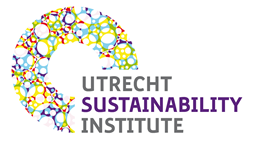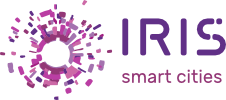
Sustainable innovation and impact in the Utrecht region
The mission of USI is to ensure that knowledge institutes and the market work together to make more effective use of the innovative power and intellectual capacity of the Utrecht region. USI aims to be a distinctive focal point for research, development and application of knowledge and innovative solutions in the are of sustainable urban regions. USI also strives to offer a platform for knowledge development, information and inspiration on the interdependence between the various scientific, financial and socio-cultural aspects of sustainability.
Vision
Change is vital
Realising sustainable development, is one of the greatest challenges that we face in the 21st century to guarantee the well-being of the earth, and those living on it. Scarcity of resources will make it increasingly difficult to replenish our supplies of resources and energy. This problem will only be exacerbated in the future, as the world population of six billion in 2000 is expected to grow to approximately nine billion in 2050. Preliminary calculations indicate that this will result in a tripling of the world’s current pattern of consumption.
Towards a circular economy and new energy
One method of reinforcing our planet’s economic foundation would be to restructure our linear economy into a circular economy. In other words: returning finite resources back to the source using the ‘reduce, recycle, replace’ principle. Nature itself is the best example of this principle, where once-living material is reused as the building blocks for new life. The development of new technologies for energy systems powered by sources that are continuously available – such as wind, water and sun – will play a decisive role in achieving this goal.
Regional cooperation
The energy transition and the creation of a circular economy will require better coordination between companies in production chains and clusters at the regional level. Where at a national level it may be difficult to achieve concrete steps, cities and regions can take the initiative to demonstrate and realise sustainable urban development in practice with regional partners. Such transitions can only be achieved with the active participation of consumers, users, and government. Therefore, early coordination with these parties is crucial.
From specialisation to integration
According to current prognoses, by 2050 approximately 75% of the world population will live in and around major metropolitan areas. To meet this challenge, USI is working to combine – and find a balance between – the knowledge and insights present in the business community, the government, social organisations, and citizens. In doing so, we consider the negative effects of specialisation, such as one-dimensional optimisation, to come to a broader understanding of all of the economic, ecological and social aspects involved in the development of sustainable urban regions. In other words, a strong integration of excellent expertise in one’s own field with knowledge of other relevant fields is an immediate priority.

